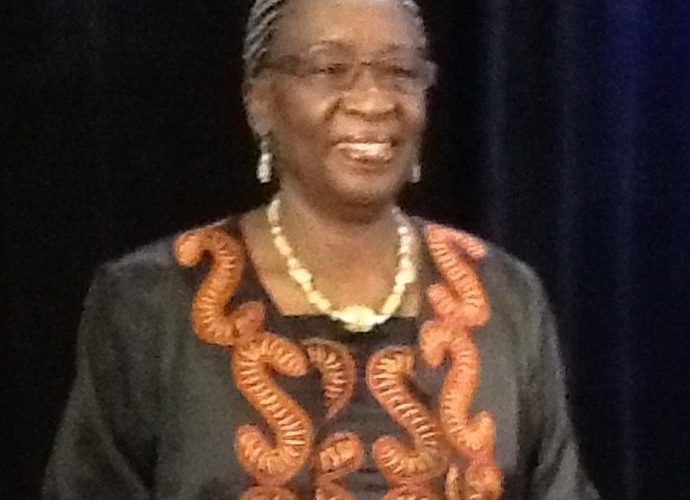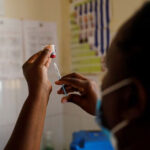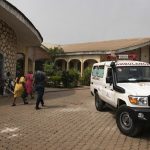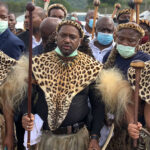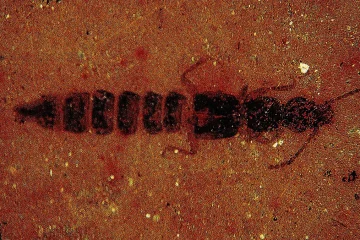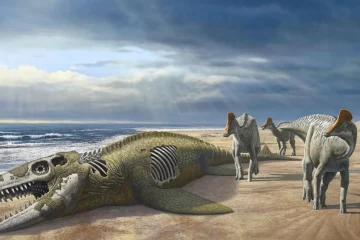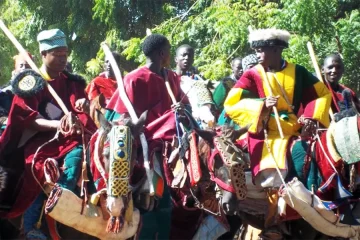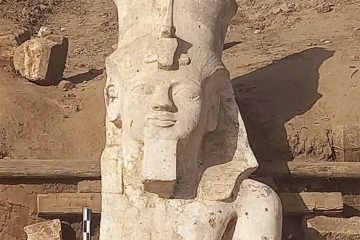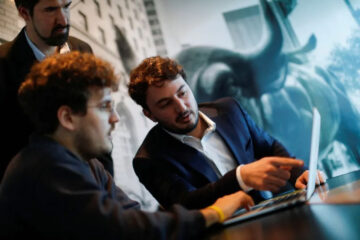JOVIAL RANTAO
THE signature at the bottom of the email oozed with confidence and the boldness of an African lioness.
It read:” From the Queen Mother – Cameroon Medical Community”.
With a string of accolades that she has garnered over five decades and the lives that she has saved in Cameroon, perhaps Dr Rose Gana Fomban Leke can be allowed to boast about her achievements and the special place she holds in society.
Leke, who saved many lives by coming up with ways of preventing the deadly malaria disease, is, in many ways, a special woman.
She has spent most of the last four decades in laboratories, lecture rooms and conference centres.
Leke has been honoured both at home and abroad. Her accolades include being Emeritus Professor at the University of Ghana, being awarded the Kwame Nkrumah Scientific Award for Women, appointed as chair of the Cameroonian National Medical Research Institute and being elected as a fellow at the American Society of Tropical Medicine and Hygiene. In 2018 Cameroon honoured her as a national heroine of health.
Venturing into the world of science was difficult for Leke. She had to deal with a variety of problems, including patriarchy.
“There were instances in the very early days when I went for months without any verbal communication with two male researchers I was working on a project, as they saw that the World Health Organisation was interested in me, my research and was inviting me to meetings. They tried very hard in public to put me down, without success. Men have tried to water down positive comments made about me, they pretend to pay no attention, whereas if it were a male, there would be acclamations. I realized this early enough in my career, and so was very cautious. Not only men, women can also be women’s worst enemies, but let’s leave that aside for now,” Leke recalled.
She was quick to point out that, despite her experiences, she maintains respect for male colleagues who see her as a scientist and not a female.
“I must also emphasize that I have gained more respect from men – male colleagues, who see me as a scientist and not as a female. However, there were always the jealous ones, who tried to block most of what I tried to do, nevertheless as a door closes, a window opens, or I jump over the wall. I was once asked by the director of our teaching hospital where my laboratory was located to take away my whole laboratory from a building, he threw me out. But another director gave me the right advice which saved me and my lab,” she added.
Her other big challenge, albeit it different, was balancing her professional and private roles. She emphasised that the only way she successfully managed her roles as, among others, a wife, mother, scientist, researcher and thesis supervisor, was to prioritize correctly and manage her time efficiently.
“Prioritization, time management, planning, discipline and rigour all went into my daily activities. It was not easy but possible. I had to manage a home where my husband is also a medical doctor and scientist. We were both at the Faculty of Medicine. I had to be quiet in many meetings where we are together. Culturally, I could not shine more than him. It was a struggle. But l knew my purpose, and my goal,” Leke said.
She said that one of the most effective ways to increase the number of women in science would be to start at home by treating both boy girl children equally. The days when boys would receive tractors and girls would get dolls for Christmas should come to an end. And there should be role models. “By seeing an accomplished woman scientist that looks like her and whose start in life resembles hers, the young girl will also dream and see herself in the role model’s shoes in the future. It is also important not to burden the girl child with house chores as it is usually done.”
The “Queen of Immunology” also thinks that science could play a big role in the development of Africa, with women at the centre.
She explained: “Science plays a big role in the development and advancement of all nations. But development does not only need science and technology. It is important to have free will and respect of others in order to allow science to be the fertile soil for development. The examples of Russia during Marxism or in South Africa during apartheid show us that high literacy and high scientific knowledge does not directly translate into socio-economic development. Free choice and competitive markets are key to development.
Since women are the primary caregivers in families, they are the ones who usually lead the family in adjusting to challenges. Women are thus usually the ones facilitating changes in families. Hence, when women are afforded the opportunity to have free choice, a society is likely to be developed. In Science, women naturally help in adjusting to new challenges and new realities.”
Leke’s dream to become a scientist was born in difficult circumstances. She had surgery and recovered from a lung abscess and was curious and determined to try to understand what happened to her.
The serious pursuit of her dream came in high school, when she decided to study chemistry and physics. She did well enough to earn a Fulbright scholarship to study abroad. More scholarships followed her excellent results and soon she returned home with a Ph.D in microbiology/immunology.
“My areas of research are in the immunology of infectious diseases, particularly Malaria, in pregnant women, in children and in the population. With regards to my research on Malaria during pregnancy, as I was growing up, I remember my mother boiling leaves of papaya, guava, fever grass, etc. for me to sit over covered with a blanket to treat the fever I had. I was told it was malaria. I was curious to learn more about this and see how I could help prevent other children from being put through that. So I was set in my mind to work on malaria,” Leke said.
Soon after arriving home, she and her husband, an obstetrician-gynaecologist, put a multidisciplinary team of scientists in Cameroon and in Georgetown University to study malaria in children, in the population and in pregnant women.
Leke is now retired but her laboratory remains fully functional and she continues to impart her extensive knowledge and experience to young scientists. Her contribution as a consultant and speaker on the international scientist platforms also keeps her busy. – Women in Science.
CAREER HIGHLIGHTS
- 1985 to 2013: Taught at the Faculty of Medicine and Biomedical Sciences of the University of Yaoundé as head of the Department of Infectious Diseases and Head of the Biotechnology Center.
- 2019 – The chair of the board of the Institute of Medical Research and the Studies of Medicinal Plants.
- 2019 – Vice-Chair of the Scientific Committee of the Chantal Biya Research Institute.
- 2019 – Executive Director of the Cameroon Coalition against malaria.
- 2019 – Fellow of the Cameroon Academy of Sciences, the World Academy of Sciences and the African Academy of Sciences.
- 2019 – Chairperson of the African Regional Certification Commission for Polio Eradication and one of the six members of the Global Certification Commission.
- 2019 – Member of the first group of experts in the WHO/Global Malaria Program, The Malaria Advisory Committee and now a member of the newly created Malaria Elimination Oversight Committee. . Served on other committees for WHO, and also served as Vice-Chair of the Technical Evaluation Reference Group (TERG) of the Global Fund.
- 2019 – Chair of the Multilateral Initiative on Malaria Secretariat and Executive Director of the Cameroon Coalition against Malaria, MC-CCAM.
AWARDS RECEIVED
- 1999 Received the Merit Prize in Science and Technology awarded by the First Lady of Cameroon on the first Special day to Honor the Cameroonian woman.
- 2001 – Crowned by the Soroptimist International Club of Yaounde as ‘Woman of the Community”.
- 2003 – Awarded the Chevalier de L’Ordre de la Valeur on the occasion of the “Journée Universitaire des Sciences et de Technologie.”
- 2004 – Honoured as “Mother of Ngali II Village” at the launch of two water wells drilled with funds from ICIDR/HIRE malaria projects awarded by NIH to me and my team.
- 2009 – Received the ‘Officier de L’Ordre de la Valeur,’at the 40th Anniversary of the Faculty of Medicine, UYI, Cameroon.
- 2011 – Awarded the African Union Kwame Nkrumah Scientific Award for Women- Central Africa. “I received Congratulations from the President of the Republic and the First lady, and other high officials of the State”.
- 2012 – Recognized by the Cameroon Professional Society (CPS) and received their distinguished award for excellence in the Sciences, in Washington DC, USA.
- 2014 – After presenting the 2014 Aggrey-Fraser-Guggisberg Memorial Lectures for three consecutive days at the University of Ghana in Legon, she was honoured with the DSc Honoris Causa awarded by the University of Ghana
- In 2015 – Elected Honorary International Fellow of the American Society of Tropical Medicine and Hygiene ASTMH.
- 2018 – Selected as one of the nine women in the world who were each crowned as “Heroine of Health”. “ A great way to end a very fulfilled career…”
- 2018 – Honoured as “Queen Mother of the Cameroon Medical Community” by Cameroon Medical Council, the Order of Cameroon Doctors. The two organisations have many members who are her former students.
- 2019 – Received the highest honour from the Cameroonian government: The medal of Commandeur de L’Ordre de la Valeur.

